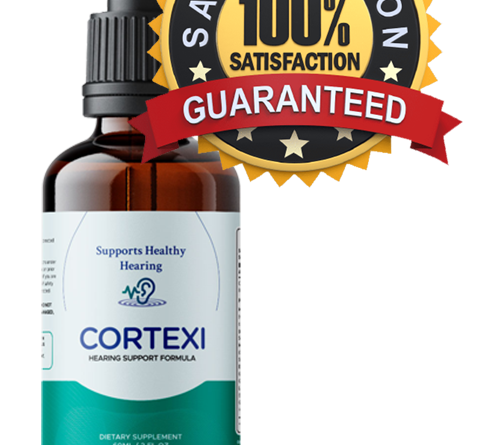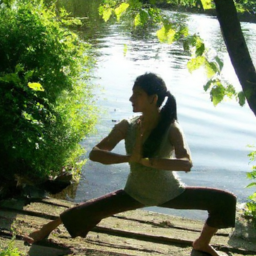
Disclaimer: This post may contain affiliate links. As an Amazon Associate, we earn from qualifying purchases.
Discover the secrets behind the wonders of natural healing with our revolutionary product, “How Does Natural Healing Work?” In this article, we will explore the fascinating world of natural healing and peel back the layers to understand the science and methodologies behind this ancient practice. Find out how the body has an innate ability to heal itself, and how natural remedies and therapies can support and enhance this process. Get ready to embark on a journey of discovery and empowerment as we unravel the mysteries of natural healing together.
Overview of Natural Healing
Definition of Natural Healing
Natural healing is an approach to health and wellness that emphasizes the body’s ability to heal itself using natural methods and remedies. It involves a holistic approach that considers the physical, mental, emotional, and spiritual aspects of a person’s well-being.
Principles of Natural Healing
The principles of natural healing are based on the belief that the body has an innate ability to heal itself. It recognizes the interconnectedness of all aspects of health and aims to support and strengthen the body’s self-healing mechanisms. Natural healing also emphasizes the importance of treating the root cause of illness rather than just the symptoms.
History of Natural Healing
Natural healing has a rich history that dates back thousands of years. Ancient civilizations such as the Egyptians, Greeks, and Chinese utilized natural remedies and practices to promote healing. Traditional systems of medicine, such as Ayurveda and Traditional Chinese Medicine (TCM), have been practiced for centuries and have laid the foundation for natural healing methods that are still used today.
Types of Natural Healing
Herbal Medicine
Herbal medicine utilizes plants and plant extracts to treat various health conditions. Different parts of plants, such as leaves, stems, flowers, and roots, are used to prepare herbal remedies. These remedies can be taken internally as teas, capsules, or tinctures, or applied topically as oils or ointments.
Homeopathy
Homeopathy is a system of medicine that treats patients with highly diluted substances that would cause similar symptoms in healthy individuals. It is based on the principle of “like cures like” and aims to stimulate the body’s natural healing response. Homeopathic remedies are prepared through a process of potentization, where the original substance is diluted and succussed multiple times.
Acupuncture
Acupuncture is a traditional Chinese healing practice that involves the insertion of thin needles into specific points on the body. It is believed to stimulate the flow of energy, or Qi, along meridians in the body, restoring balance and promoting healing. Acupuncture has been used for centuries to treat various conditions and is now widely recognized by conventional medicine.
Aromatherapy
Aromatherapy utilizes the therapeutic properties of essential oils extracted from plants to promote physical and emotional well-being. Essential oils can be used in diffusers, applied topically, or inhaled to stimulate relaxation, relieve pain, boost mood, and support overall health.
Chiropractic
Chiropractic is a hands-on approach to healthcare that focuses on the musculoskeletal system, particularly the spine. Chiropractors use manual manipulation techniques to align the spine and other joints, aiming to restore proper function and alleviate pain. Chiropractic care is commonly used for back and neck pain, headaches, and musculoskeletal conditions.
Meditation and Mindfulness
Meditation and mindfulness practices are used to quiet the mind, promote relaxation, and increase self-awareness. They can help reduce stress, anxiety, and improve overall mental and emotional well-being. These practices involve focusing attention and becoming present in the moment, which can have a positive impact on physical health as well.
Ayurveda
Ayurveda is an ancient Indian system of medicine that focuses on balancing the body, mind, and spirit to promote health and prevent disease. It utilizes natural remedies, dietary changes, herbal medicine, and lifestyle modifications to align an individual with their unique constitution, or dosha.
Traditional Chinese Medicine (TCM)
Traditional Chinese Medicine (TCM) is a comprehensive system of medicine that includes acupuncture, herbal medicine, dietary therapy, massage, and exercises such as qigong. TCM aims to restore balance and harmony within the body and is grounded in the principles of Yin and Yang and the flow of Qi.
Naturopathy
Naturopathy is a holistic approach to healthcare that combines natural therapies, lifestyle changes, and conventional medicine when necessary. Naturopathic doctors focus on treating the whole person, addressing the underlying causes of illness, and promoting overall wellness. They may utilize various natural healing modalities, such as herbal medicine, nutrition, hydrotherapy, and physical medicine.
Energy Healing
Energy healing modalities, such as Reiki, Qi Gong, and Healing Touch, work on the belief that energy flows throughout the body and can become imbalanced or blocked, leading to illness. These practices aim to restore the flow of energy, balance the body’s energy centers, and promote healing.
Factors Influencing Natural Healing
Individual’s Innate Healing Power
Natural healing recognizes the inherent healing power of the body. Each individual possesses a unique ability to heal themselves and maintain balance. Natural healing modalities aim to support and enhance the body’s innate healing abilities.
Holistic Approach to Health
Natural healing takes a holistic approach to health, considering the physical, mental, emotional, and spiritual aspects of well-being. It recognizes that addressing imbalances and treating the whole person is essential for healing and maintaining optimal health.
Diet and Nutrition
Proper nutrition is crucial for natural healing as it provides the necessary nutrients for the body to function optimally and heal itself. A balanced diet rich in whole foods, fruits, vegetables, and essential nutrients supports the body’s healing processes and strengthens the immune system.
Physical Activity and Exercise
Regular physical activity and exercise play a vital role in natural healing. Exercise promotes circulation, improves cardiovascular health, strengthens muscles and bones, and enhances the body’s overall resilience and healing capacity. It also aids in stress management and promotes mental well-being.
Emotional Well-being
Emotional well-being is essential for natural healing. Emotional stress and negative emotions can interfere with the body’s healing processes. By addressing emotional imbalances and promoting emotional well-being through therapy, mindfulness practices, meditation, and other techniques, natural healing can support the body’s ability to heal.
Stress Management
Chronic stress can have a negative impact on the body’s healing processes and overall health. Natural healing emphasizes the importance of stress management techniques such as relaxation exercises, meditation, yoga, and other stress-reducing practices to support the body’s healing abilities.
Sleep and Rest
Adequate sleep and rest are essential for the body’s healing processes. During sleep, the body repairs and rejuvenates itself. Natural healing recognizes the importance of quality sleep and restful periods to support the body’s self-healing mechanisms.
Environmental Factors
The environment in which we live can greatly impact our health and healing. Natural healing considers the influence of environmental factors such as air and water quality, exposure to toxins, and the presence of nature in supporting the body’s healing processes.
Social Support
Social support and a strong support network can positively influence natural healing. Strong relationships, community connections, and emotional support can aid in stress reduction, provide comfort, and enhance overall well-being.
Lifestyle Choices
Lifestyle choices play a significant role in natural healing. Adopting a healthy lifestyle that includes regular exercise, a balanced diet, stress management techniques, and self-care practices can support the body’s healing processes and promote overall wellness.
Mechanisms of Natural Healing
Activation of Body’s Self-healing Mechanisms
Natural healing modalities aim to activate and enhance the body’s self-healing mechanisms. By providing the body with the necessary tools and support, natural healing promotes the body’s ability to heal itself.
Restoration of Balance and Harmony
Many natural healing practices focus on restoring balance and harmony within the body. Imbalances are believed to be the root cause of illness, and by addressing these imbalances, natural healing supports the body’s healing processes.
Detoxification and Cleansing
Detoxification and cleansing are important mechanisms of natural healing. By eliminating toxins and waste products from the body, natural healing promotes optimal organ function, removes barriers to healing, and supports overall wellness.
Stimulation of Vital Energy
Some natural healing modalities focus on stimulating and balancing the body’s vital energy, such as Qi in Traditional Chinese Medicine. By promoting the flow of energy throughout the body, natural healing supports healing processes and overall well-being.
Enhancement of Immune Function
A strong immune system is crucial for natural healing. Natural healing modalities aim to support and enhance immune function through proper nutrition, stress reduction, lifestyle changes, and natural remedies.
Alleviation of Inflammation
Inflammation is a natural healing response of the body, but chronic inflammation can contribute to disease. Natural healing methods often include anti-inflammatory practices, such as dietary adjustments, herbal remedies, and stress reduction techniques, to alleviate inflammation and promote healing.
Promotion of Natural Pain Relief
Natural healing modalities often include techniques and remedies for natural pain relief. These may include acupuncture, herbal medicine, essential oils, and physical therapies to help relieve pain and support the body’s healing processes.
Optimization of Organ Function
Natural healing focuses on optimizing organ function to support healing processes. Through dietary changes, herbal medicine, and lifestyle modifications, natural healing aims to enhance the function of organs and systems within the body.
Rejuvenation and Regeneration
Natural healing aims to promote rejuvenation and regeneration of tissues and cells. Natural remedies, therapies, and lifestyle choices that support cellular health and renewal are integral to natural healing.
Promotion of Mental Clarity and Emotional Balance
Natural healing recognizes the importance of mental clarity and emotional balance in overall health and healing. Through practices such as meditation, mindfulness, therapy, and emotional support, natural healing promotes mental well-being and emotional balance.

This image is property of images.unsplash.com.
Scientific Evidence and Research
Research studies supporting natural healing
Numerous studies have been conducted to explore the effectiveness of various natural healing modalities. Research has shown positive outcomes for conditions such as chronic pain, anxiety, depression, sleep disorders, and more. While more research is needed, these studies provide evidence for the efficacy of natural healing.
Placebo effect and its role in natural healing
The placebo effect plays a significant role in natural healing. The belief and expectation that a treatment will be effective can influence the body’s healing response. While the placebo effect cannot fully explain the benefits of natural healing, it highlights the role of the mind in the healing process.
Integration of natural healing with conventional medicine
Integration of natural healing with conventional medicine is gaining recognition and acceptance. Many healthcare providers are now incorporating natural healing modalities into their practice, recognizing the benefits of a holistic approach to patient care.
Limitations and challenges in researching natural healing
Researching natural healing presents challenges due to the complexity and individualized nature of natural healing modalities. Variations in treatment protocols, inconsistent quality control, and difficulty in conducting controlled studies pose limitations in research. However, ongoing efforts are being made to strengthen the evidence base for natural healing.
Safety and Side Effects
Natural healing as complementary therapy
Natural healing is often used as a complementary therapy alongside conventional medicine. When used in conjunction with appropriate medical care and under the guidance of trained professionals, natural healing can be safe and effective.
Risks and side effects of different natural healing methods
While natural healing methods are generally considered safe, they can have side effects and risks. These can range from mild to severe and vary depending on the specific modality and individual factors. It is essential to consult trained practitioners and healthcare providers to ensure safe and appropriate use.
Interaction with medications and conventional treatments
Natural healing methods can interact with medications and conventional treatments. It is vital to inform healthcare providers about the use of natural healing modalities to prevent potential interactions or conflicts with prescribed medications or treatments.
Professional guidance and expertise
Natural healing should be pursued under the guidance and expertise of trained professionals. They can provide personalized recommendations, monitor progress, and ensure the safe and effective use of natural healing methods.

This image is property of images.unsplash.com.
Considerations for Natural Healing
Individualized approach and personalized medicine
Natural healing recognizes the uniqueness of each individual and the importance of tailoring treatments to their specific needs. An individualized approach and personalized medicine are crucial to maximize the benefits of natural healing.
Consultation with trained practitioners
Consulting trained practitioners is essential for safe and effective natural healing. They can assess individual needs, provide expert advice, and guide individuals through the appropriate use of natural healing modalities.
Integration of multiple natural healing modalities
Combining multiple natural healing modalities can enhance their effects and provide a comprehensive approach to healing. Integrating different modalities that address different aspects of health and well-being can lead to synergistic benefits.
Evaluation of individual needs and conditions
Before embarking on natural healing, it is important to evaluate individual needs, conditions, and goals. This assessment will help determine the most appropriate natural healing modalities and approaches to support individual health and well-being.
Patient education and empowerment
Patient education and empowerment are integral to natural healing. Understanding the principles, benefits, and limitations of natural healing methods empowers individuals to make informed decisions about their healthcare and take an active role in their healing journey.
Criticism and Controversies
Lack of scientific evidence and skepticism
Natural healing has faced criticism due to a perceived lack of scientific evidence. Skepticism arises from the difficulty of traditional research methods to capture the complexities and individuality of natural healing practices. However, an increasing body of research is providing evidence for the efficacy of natural healing.
Potential misinformation and false claims
As with any field, natural healing is not immune to misinformation and false claims. It is important to seek information from reputable sources and consult trained professionals to navigate through the vast amount of information available.
Regulation and quality control issues
Regulation and quality control of natural healing practices and products can vary. Standards and regulations help ensure the safety and efficacy of natural healing modalities. It is important to seek products and services from reputable sources that adhere to established quality control measures.
Discouragement of evidence-based medicine
Some critics argue that natural healing may discourage the use of evidence-based medicine. However, many natural healing practices can complement and enhance conventional medicine, providing a more comprehensive and personalized approach to healthcare.
Conflict with established medical practices
A conflict between natural healing and established medical practices exists in some cases. However, collaboration and integration between natural healing and conventional medicine are gaining recognition and acceptance, leading to better patient outcomes.
Promoting Natural Healing
Holistic lifestyle choices
Promoting a holistic lifestyle that incorporates natural healing principles is essential. Adopting healthy dietary practices, regular physical activity, stress management techniques, and emotional support contribute to overall wellness and natural healing.
Education and awareness
Education and awareness about natural healing can help individuals make informed decisions about their healthcare. Providing accurate and evidence-based information about natural healing modalities, their benefits, limitations, and safety guidelines can empower individuals to explore natural healing approaches.
Public campaigns and advocacy
Public campaigns and advocacy efforts can promote the integration of natural healing into healthcare systems. Raising awareness, addressing misconceptions, and advocating for funding and regulation of natural healing practices can lead to greater acceptance and access to natural healing modalities.
Integration in healthcare systems
Integrating natural healing into healthcare systems is crucial to provide comprehensive and patient-centered care. By recognizing the value and benefits of natural healing modalities, healthcare systems can expand treatment options and provide a holistic approach to healing.
Collaboration with conventional medicine
Collaboration between natural healing practitioners and conventional healthcare providers can lead to improved patient outcomes. By working together, sharing knowledge and expertise, and integrating approaches, patients can benefit from the strengths of both modalities.
Research funding and support
Increased research funding and support for natural healing can help strengthen the evidence base and expand knowledge in this field. Funding research studies, clinical trials, and support for researchers can contribute to a better understanding of natural healing and its effectiveness.
Recognition and regulation of natural healing practices
Recognition and regulation of natural healing practices can ensure the safety and quality of treatments. Establishing standards, licensing requirements, and professional organizations can help protect the public and provide guidance for practitioners.
Conclusion
Natural healing offers a holistic and integrative approach to health and well-being. By supporting the body’s innate healing mechanisms, restoring balance, and addressing root causes, natural healing modalities aim to enhance overall health and promote healing. While further research is needed, scientific evidence, integration in healthcare systems, and increasing patient demand are contributing to the recognition and acceptance of natural healing as a valuable and effective approach to healthcare. By embracing natural healing principles, individuals can take an active role in their health and well-being, benefiting from the numerous modalities and practices that foster natural healing and promote optimal health.
As an Amazon Associate, we earn from qualifying purchases.















